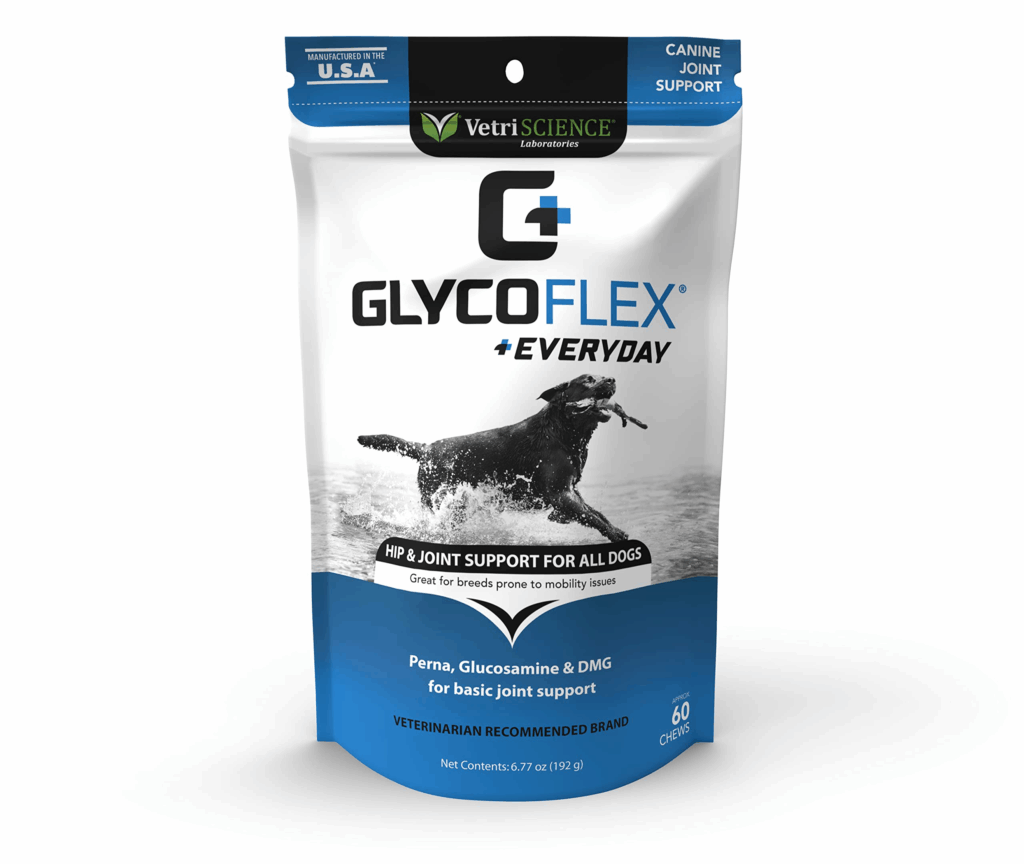Are you a proud pet parent of a small breed dog? One prevalent concern you may have is the maintenance of their joint health. Given their petite size and fast metabolism, these tiny furballs require a specialized diet, often supplemented with necessary vitamins and minerals to maintain healthy joints. This post delves into the ‘Tiny but Mighty: Top Supplements for Healthy Joints in Small Breed Dogs’ topic, exploring ways to support the joint health of your small breed dog.

Small breed dogs, though smaller in stature, are just as prone, if not more, to joint-related issues as their larger counterparts. The smaller the breed, the more critical the need for preventative measures to ensure they can frolic freely throughout their lives. This post will break down the science behind joint health in small dogs, explaining why these pint-sized pets need their special supplements.
What follows is an in-depth look at the top supplements that can aid in maintaining and improving joint health in small breed dogs. You will also find information on how to properly administer these supplements and potential side effects to watch out for. Whether you’re trying to alleviate symptoms in an older dog or take preventative measures for a new puppy, you’ll find all the insights and advice you need right here. Let’s jump into the world of petite pups and their joint health.
Understanding the Unique Nutritional Needs of Small Breed Dogs
The nutritional requirements of small breed dogs often differ significantly from those of their larger counterparts. The metabolic rate of smaller dogs is considerably higher, meaning they need more calories per pound of body weight. Alongside their energy needs, small breed dogs also require particular nutritional supplements to maintain healthy joints. Despite their small size, these breeds are typically active and energetic, putting additional stress on their joints. Thus, the inclusion of certain nutrients in their diet is crucial.
Maintaining a balance between calorie intake and nutrient density is particularly important. Small breeds tend to have smaller stomachs, meaning they cannot consume large volumes of food at once. This requires their meals to be highly nutritious and rich in essential vitamins and minerals in a compact serving. A diet lacking in essential nutrients can quickly lead to deficiencies that negatively impact joint health and overall vitality.
The Role of Omega-3 Fatty Acids
One of the most important components for joint health in small breed dogs is Omega-3 fatty acids. Found in abundance in fish oils, Omega-3 fatty acids provide anti-inflammatory properties that help to reduce joint inflammation and discomfort. Furthermore, these acids also contribute to maintaining a healthy coat and skin, making them an all-round beneficial supplement.
The two main types of Omega-3 fatty acids beneficial for dogs are EPA (eicosapentaenoic acid) and DHA (docosahexaenoic acid). These fatty acids work together to inhibit the production of inflammatory compounds that can damage joints. Studies have shown that dogs supplemented with Omega-3s experience improved mobility and reduced joint pain, particularly those suffering from osteoarthritis.
Including high-quality sources of Omega-3s, such as salmon oil, sardine oil, or flaxseed oil, in your dog’s diet can be an excellent way to naturally support their joint health. However, it is essential to ensure the correct dosage, as excessive fatty acids can lead to unwanted side effects like gastrointestinal upset.
Importance of Glucosamine and Chondroitin
Glucosamine and chondroitin are two key ingredients often found in joint supplements for small breed dogs. These natural substances are typically present in the body and contribute to the formation and repair of cartilage. As dogs age, their natural production of these substances decreases, making supplementation beneficial, particularly for those breeds prone to joint issues.
Glucosamine functions as a building block for cartilage, helping to maintain its resilience and structure. It promotes the repair of damaged cartilage and can slow down the progression of degenerative joint diseases. Chondroitin, on the other hand, inhibits enzymes that break down cartilage, offering additional protection against joint deterioration.
When combined, glucosamine and chondroitin create a powerful defense against joint wear and tear. Long-term supplementation can lead to improved joint flexibility, reduced pain, and enhanced overall mobility, especially in aging small breed dogs.
Exploring Additional Joint-Boosting Nutrients
While Omega-3s, glucosamine, and chondroitin are among the most talked-about joint health nutrients, there are several other supplements that can offer significant benefits to small breed dogs.
MSM (Methylsulfonylmethane) is a natural anti-inflammatory compound that works synergistically with glucosamine to enhance joint repair and reduce pain. It also supports the maintenance of connective tissues and cartilage.
Hyaluronic acid is another potent joint supplement that helps lubricate the joints, facilitating smoother movement and reducing pain associated with friction. It’s especially beneficial for small breeds that may suffer from patellar luxation, a condition where the kneecap slips out of place.
Antioxidants such as Vitamin C and Vitamin E play a supportive role by neutralizing free radicals that can damage joint tissues. Including these antioxidants as part of a joint health regimen can help prolong the effectiveness of other supplements and protect the overall health of the joints.
Best Practices for Introducing Supplements
Introducing supplements into your small breed dog’s diet requires careful planning and monitoring. Before starting any supplement, it is essential to consult with a veterinarian to ensure the product is appropriate for your dog’s specific needs and health condition.
Begin with a lower dose than recommended to monitor how your dog’s body reacts. Gradually increase to the full dosage over a week or two, observing for any signs of digestive upset, allergic reactions, or changes in behavior. Some dogs may experience loose stools when starting new supplements, which usually resolves as their system adjusts.
Consistency is key. Administer supplements at the same time each day, ideally with food to enhance absorption and reduce the risk of stomach upset. Mixing the supplement into their favorite meal or hiding chewable tablets inside treats can help make the process easier and more enjoyable for your pet.
Recognizing Early Signs of Joint Problems
Being able to recognize the early signs of joint issues is critical for small breed dog owners. Symptoms can be subtle at first but, if caught early, intervention with supplements and lifestyle adjustments can significantly improve outcomes.
Signs to watch for include reluctance to jump onto furniture, hesitation when climbing stairs, stiffness after resting, limping, or a noticeable decrease in activity levels. Some dogs may show discomfort when touched in certain areas or may develop a change in posture or gait.
Behavioral changes, such as irritability or withdrawal, can also indicate pain. Regularly observing your dog’s movements and demeanor can help you detect problems before they become severe.
Combining Supplements with Lifestyle Changes
While supplements can provide crucial support for joint health, they are most effective when combined with other lifestyle changes.
Maintaining an appropriate weight is one of the most important factors. Extra weight places added stress on the joints, accelerating wear and tear. Feeding your dog a portion-controlled, high-quality diet is essential to preventing obesity.
Regular, moderate exercise helps maintain muscle strength and joint flexibility. Low-impact activities, such as walking and swimming, are ideal for small dogs with or at risk of joint problems. Avoid high-impact activities like jumping from high surfaces, which can strain or injure fragile joints.
Creating a joint-friendly home environment is also beneficial. Providing ramps or stairs to access furniture, using non-slip rugs to prevent falls, and offering orthopedic beds that cushion joints can make a significant difference in your dog’s comfort.
Importance of Early Intervention
Starting a joint health regimen early in your dog’s life can have a lasting impact. Even if your small breed dog shows no current signs of joint issues, preventative measures can help delay or prevent the onset of joint disease.
Puppies can benefit from early supplementation with certain nutrients if they are from breeds known to have hereditary joint issues. Proactive care at an early stage strengthens the joints, supports healthy cartilage development, and can prevent future problems.
Early intervention is especially important for breeds like Dachshunds, Pomeranians, Chihuahuas, and Yorkshire Terriers, which are known to be prone to joint disorders such as patellar luxation and hip dysplasia.
Tailoring Joint Health Plans for Different Life Stages
The nutritional needs and joint health priorities of your dog will change as they transition from puppyhood to adulthood and then to senior years.
For puppies and young adult dogs, the focus should be on building strong bones and joints through high-quality nutrition and appropriate exercise. Supplements at this stage should aim to support growth and prevent damage.
In adult dogs, maintenance becomes the primary goal. Regular exercise, weight control, and continued supplementation with joint-protective nutrients help sustain joint health through middle age.
As your dog enters their senior years, mobility support becomes even more crucial. At this stage, higher doses of joint supplements, increased Omega-3 intake, and more frequent veterinary evaluations may be necessary to address emerging signs of arthritis or joint degeneration.
Tailoring your approach based on your dog’s life stage ensures they receive the right care at the right time, optimizing their health and comfort throughout their lifetime.
Top Supplements for Small Breed Dogs’ Joint Health
GlycoFlex Stage III Bite-Sized Dog Chews
Designed specifically for small dogs, these bite-sized chews are packed with Glucosamine, MSM, and Perna Canaliculus. These ingredients are known for their effectiveness in maintaining joint health and mobility. It’s a good choice for older dogs, those recovering from joint surgery, or breeds predisposed to joint health issues.

Nutramax Cosequin DS Plus with MSM Chewable Tablets
This chewable tablet contains a combination of Glucosamine Hydrochloride, Sodium Chondroitin Sulfate, and MSM. Each ingredient has been scientifically proven to support and maintain the health of your dog’s joints. Moreover, the chewable format makes administering the supplement a simple task.
Integrating Supplements into Your Dog’s Diet
While these supplements can be highly beneficial, they should not be the only strategy for maintaining your small breed dog’s joint health. Regular exercise, a balanced diet, and regular vet check-ups are also crucial. Here are some suggestions for integrating these supplements into your dog’s diet:
- Always follow the recommended dosage provided by the manufacturer or your vet.
- Start with a smaller dose and gradually increase it to the recommended level to allow your dog’s body to adjust.
- Try to give the supplement at the same time each day to establish a routine.
- Consult your vet if your dog shows any signs of discomfort or adverse reactions.
Considering Breed-Specific Nutritional Needs
Small breed dogs have their unique set of nutritional needs, and it’s important to consider these when selecting a joint supplement. For example, breeds like Dachshunds and French Bulldogs are known to have hereditary joint issues, so a supplement with high levels of glucosamine and chondroitin might be beneficial.
Final Thoughts
Maintaining the joint health of your small breed dog is vital for their overall well-being. A combination of a balanced diet, regular exercise, and the right joint supplement can go a long way in ensuring your furry friend remains active and comfortable throughout their life. While the supplements discussed here have been proven effective, it’s essential to consult with your vet before introducing any new supplements into your dog’s diet.
Conclusion
In conclusion, maintaining joint health in small breed dogs is vital for their overall quality of life. By incorporating the top supplements, such as glucosamine, chondroitin, omega-3 fatty acids, and multivitamins, into their diet, you can help support your pet’s joint health and mobility. These mighty, yet tiny aids play a significant role in promoting joint flexibility, reducing inflammation, and reinforcing immune response. They are crucial in the prevention and management of conditions like osteoarthritis that commonly affect small breed dogs. However, before incorporating these supplements into your pet’s diet, always consult with a veterinarian to ensure they are suitable for your dog’s specific needs and do not interfere with any ongoing treatments or conditions. As we wrap up this discussion, it’s clear that small breed dogs might be tiny, but their need for optimal joint health is mighty. A proactive approach to their joint health can indeed result in a happier, healthier, and more active life for your furry friends. Remember, your dog’s health is in your hands. Make the right choice today. 🐾



